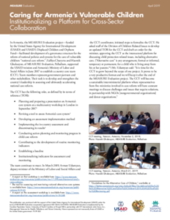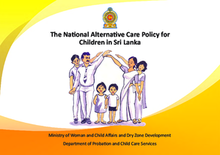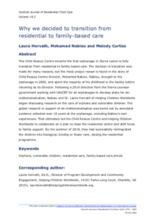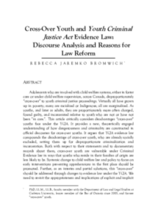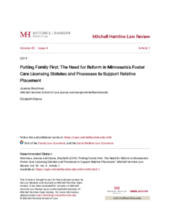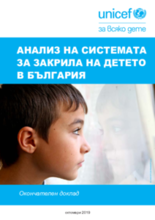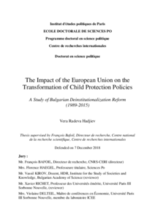Displaying 381 - 390 of 1025
This brief explains the structure and roles of this country core team (CCT) established by Armenia’s Ministry of Labor and Social Affairs in June 2017 and the team’s usefulness as a platform for collaboration for the reform of national policies and systems for the care of vulnerable children: “national care reform.”
This volume provides readers around the globe with a focused and comprehensive examination of how to prevent and respond to child maltreatment using evidence-informed public health approaches and programs that meet the needs of vulnerable children, and struggling families and communities. Detailed guidance is provided about how to re-think earlier intervention strategies, and establish stronger and more effective programs and services that prevent maltreatment at the population level.
Sri Lanka's National Policy on the Alternative Care of Children outlines a comprehensive range of alternative care options and encourages the reforming of all formal structures that provide at-home and out-of-home services for children deprived of care and protection or at risk of being so. This policy also extends to children under care of the Juvenile Justice System. It provides policy solutions to programming for children at risk of family separation and facing deprivations such as child abuse, neglect, child labor, poverty, addiction, imprisonment, human trafficking, mental and physical disabilities, HIV/AIDS, domestic violence, orphanhood, abandonment and displacement etc. The policy also takes into consideration and encompasses provisions to children who are forced to live and work on streets.
This field guide, produced by Apolitical in partnership with Hope and Homes for Children, is designed to help public servants understand the issue of children in care. It covers the following learning objectives: (1) Understand why experts say institutional care is harmful to children, (2) Learn about deinstitutionalisation and new approaches to replace institutions and prevent family separation, and (3) Learn about interventions that have improved outcomes for kids who do experience care.
This paper from the Scottish Journal of Residential Child Care outlines the Child Rescue Centre's process of transitioning from residential care to family-based care in Sierra Leone.
The aim of the study is to highlight the basic social services provided to children and their families as well as the main reasons for abandonment of children and to propose measures to improve social services for children to ensure social security in the regions.
Adolescents who are involved with child welfare systems, either in foster care or under child welfare supervision, across Canada, disproportionately “cross-over” to youth criminal justice proceedings. This article critically considers disadvantages “cross-over” youths face under the Youth Criminal Justice Act (YCJA).
This article tracks the history of foster care licensing requirements in the U.S. state of Minnesota, discusses the real-life story of a grandmother with a grandchild placed in foster care, explains the federal mandates established through the Adam Walsh Act, discusses the existing flaws in the process, and highlights the ways in which Minnesota’s current statutory scheme and processes disproportionally impact communities of color.
This research is based on a stock-taking of the current situation. It is based on a comprehensive literature review and a genuine primary research with service users as well as policy makers, service providers, children and families.
This doctoral research explores how the European Union membership has changed the post-communist heritage of institutional care in Bulgaria, focusing on the transformation of orphanages through the deinstitutionalization reform

